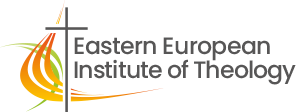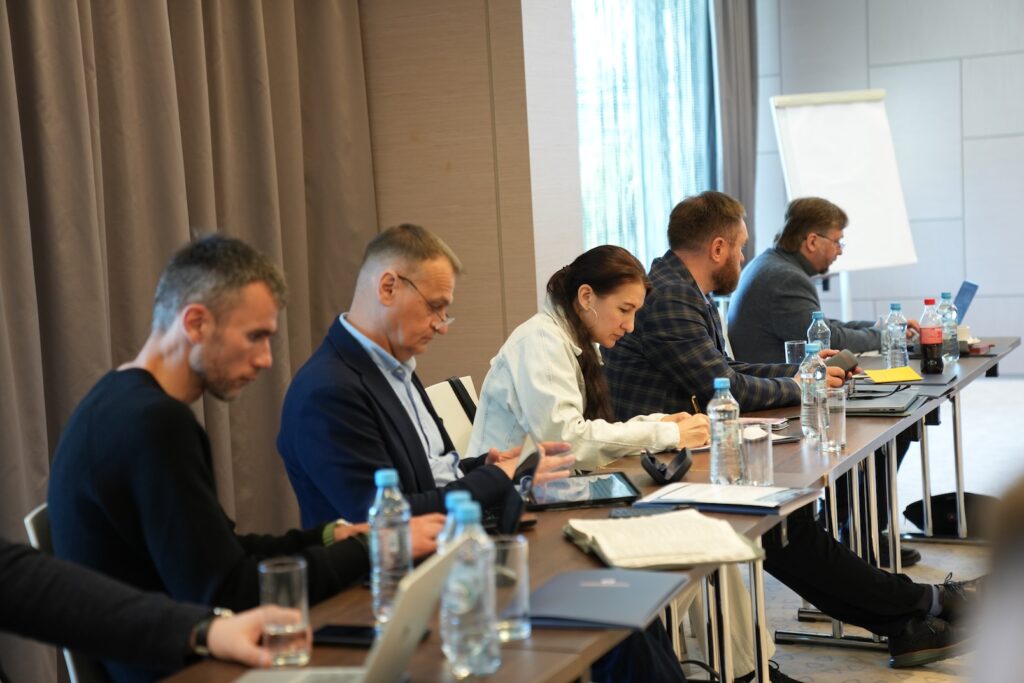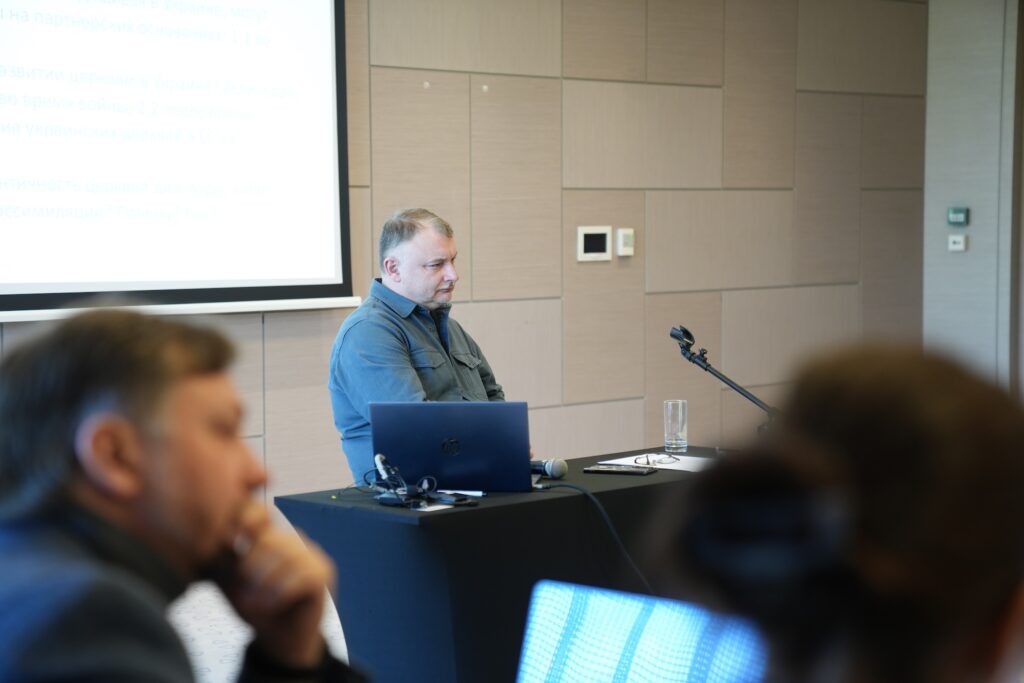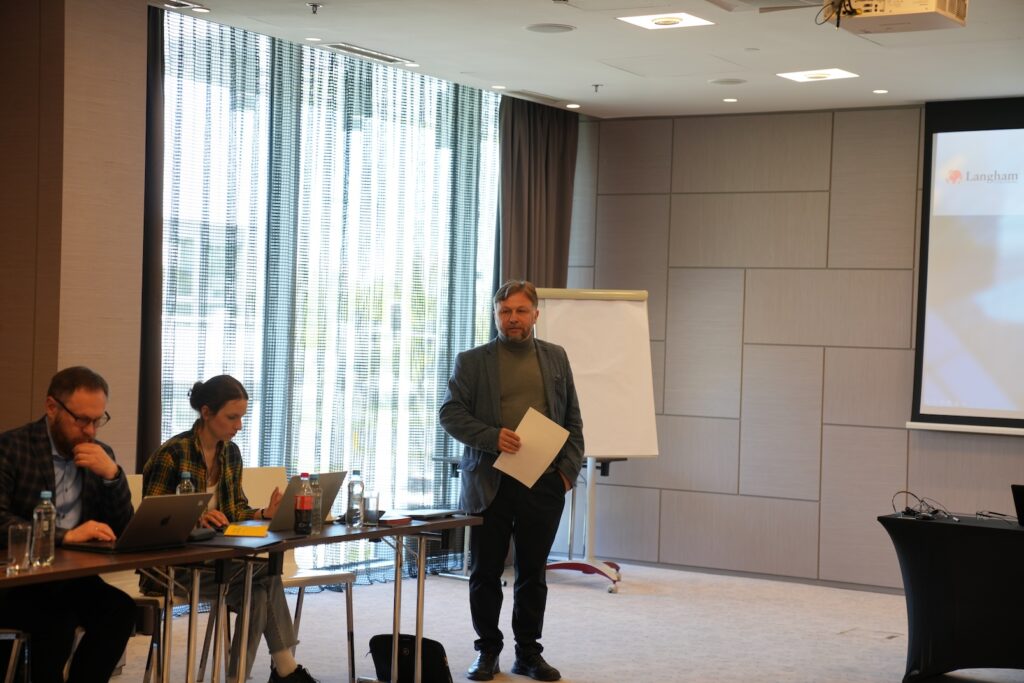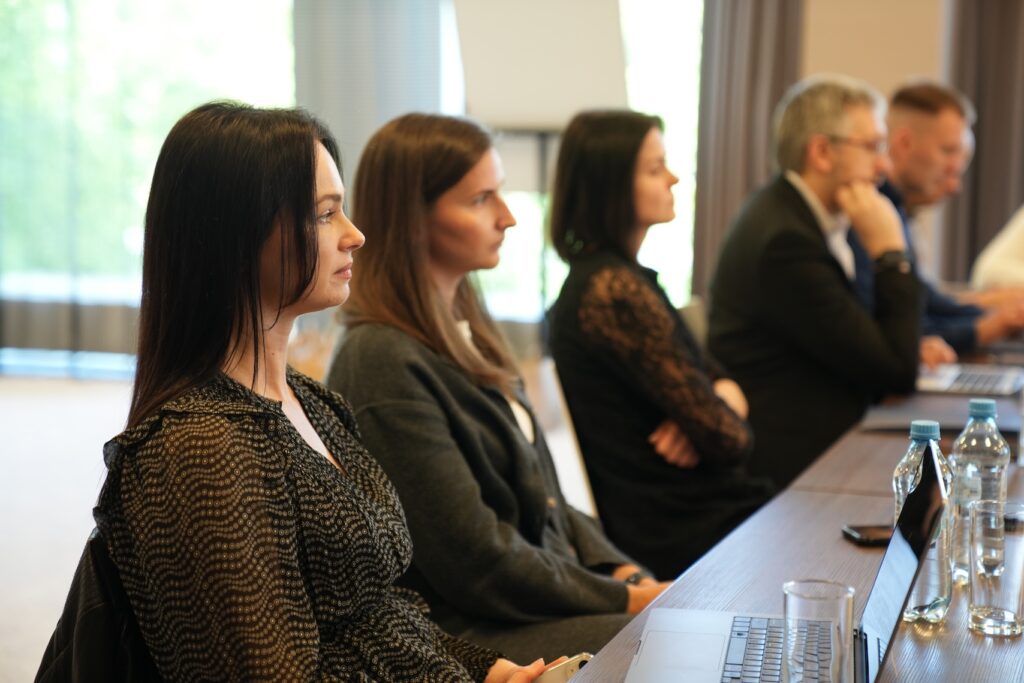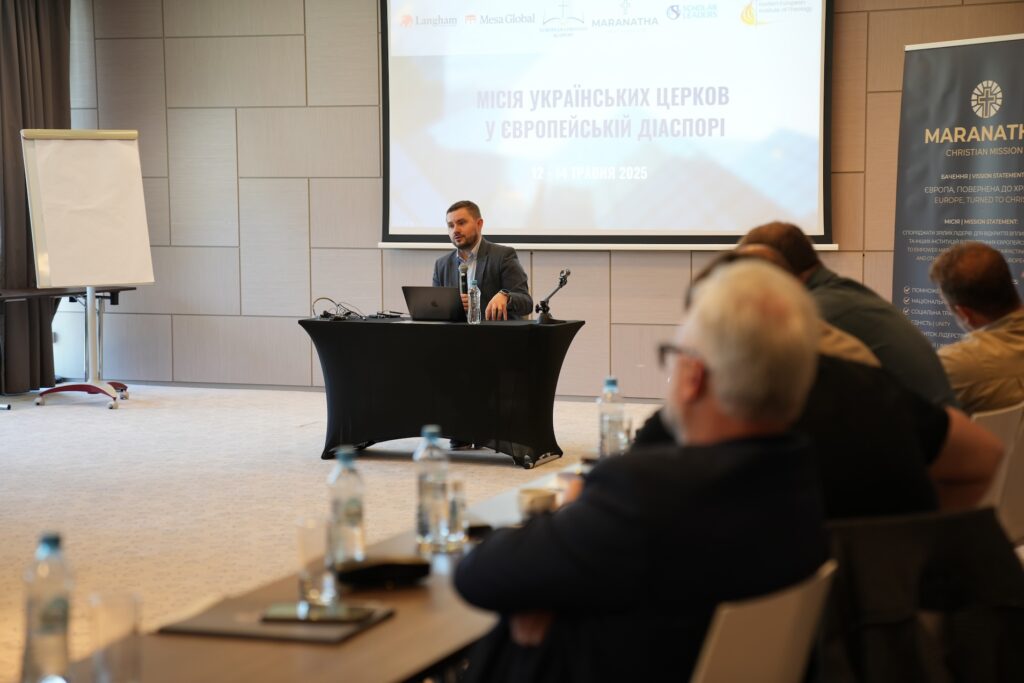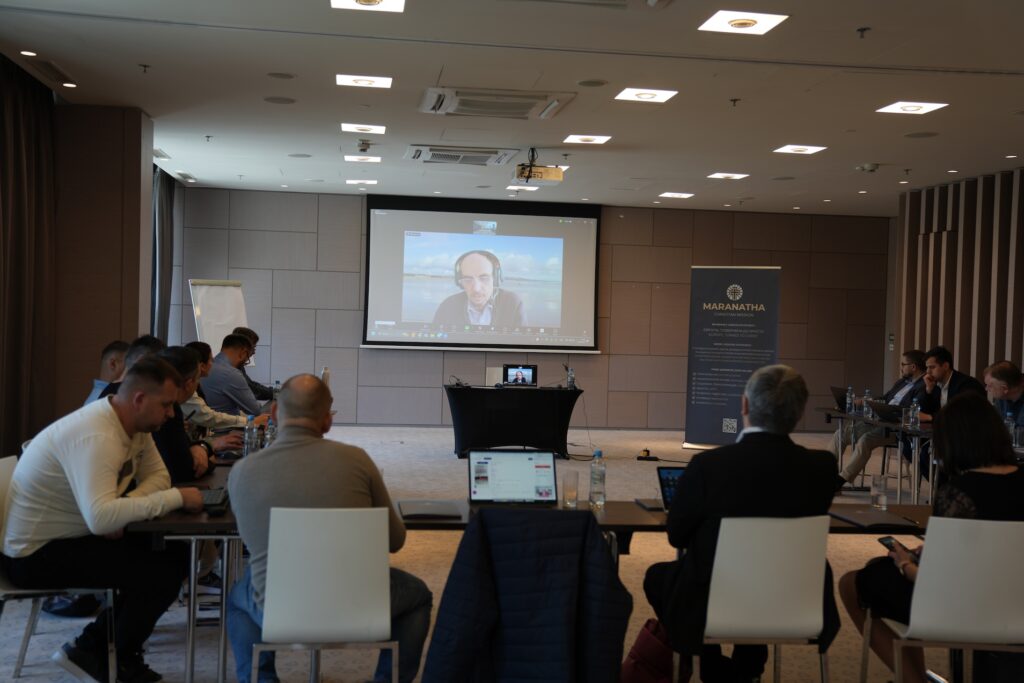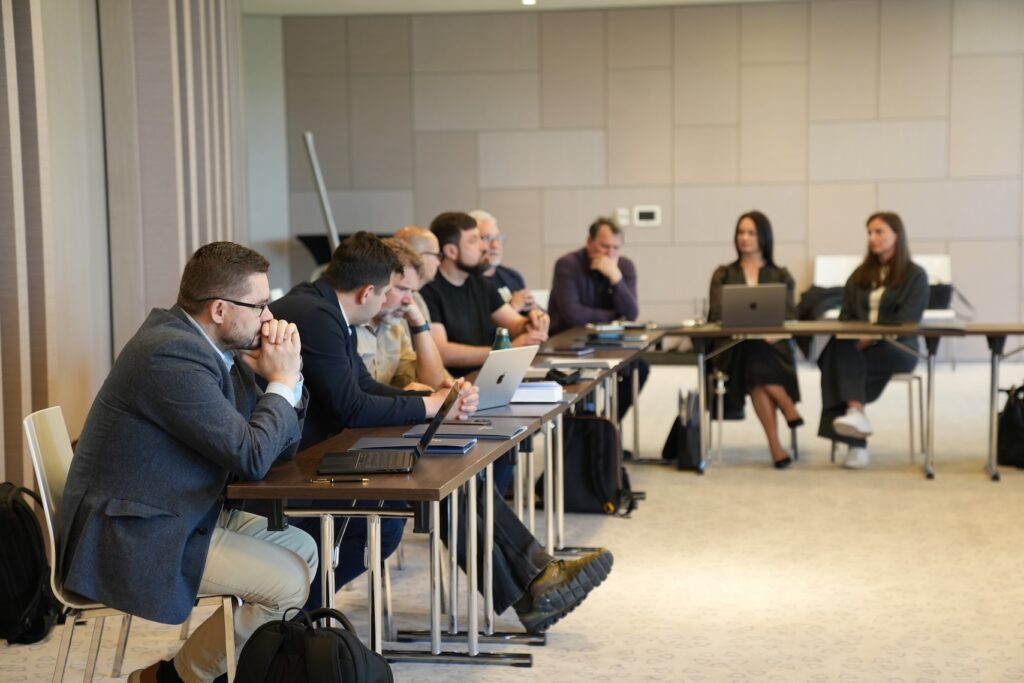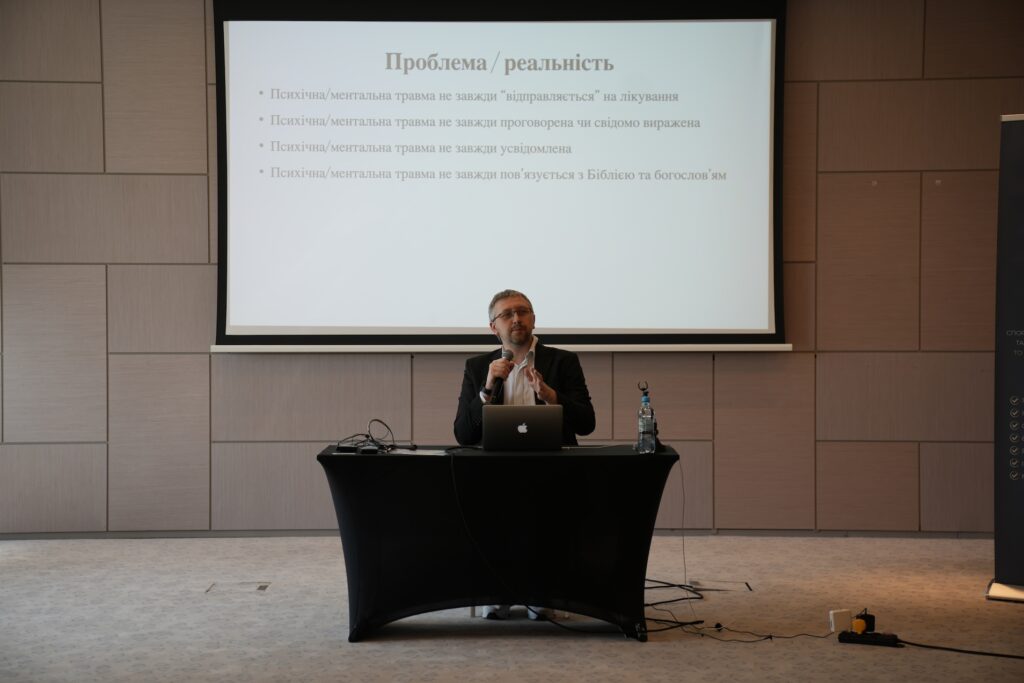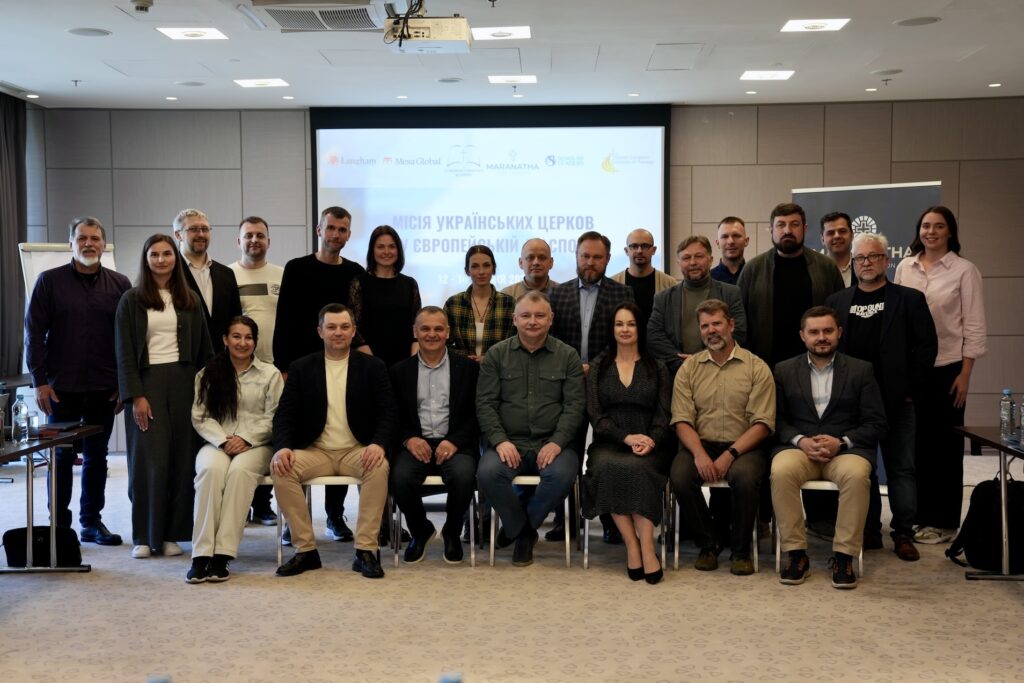Conference-Consultation “Mission of Ukrainian Churches in the European Diaspora” Took Place in Warsaw
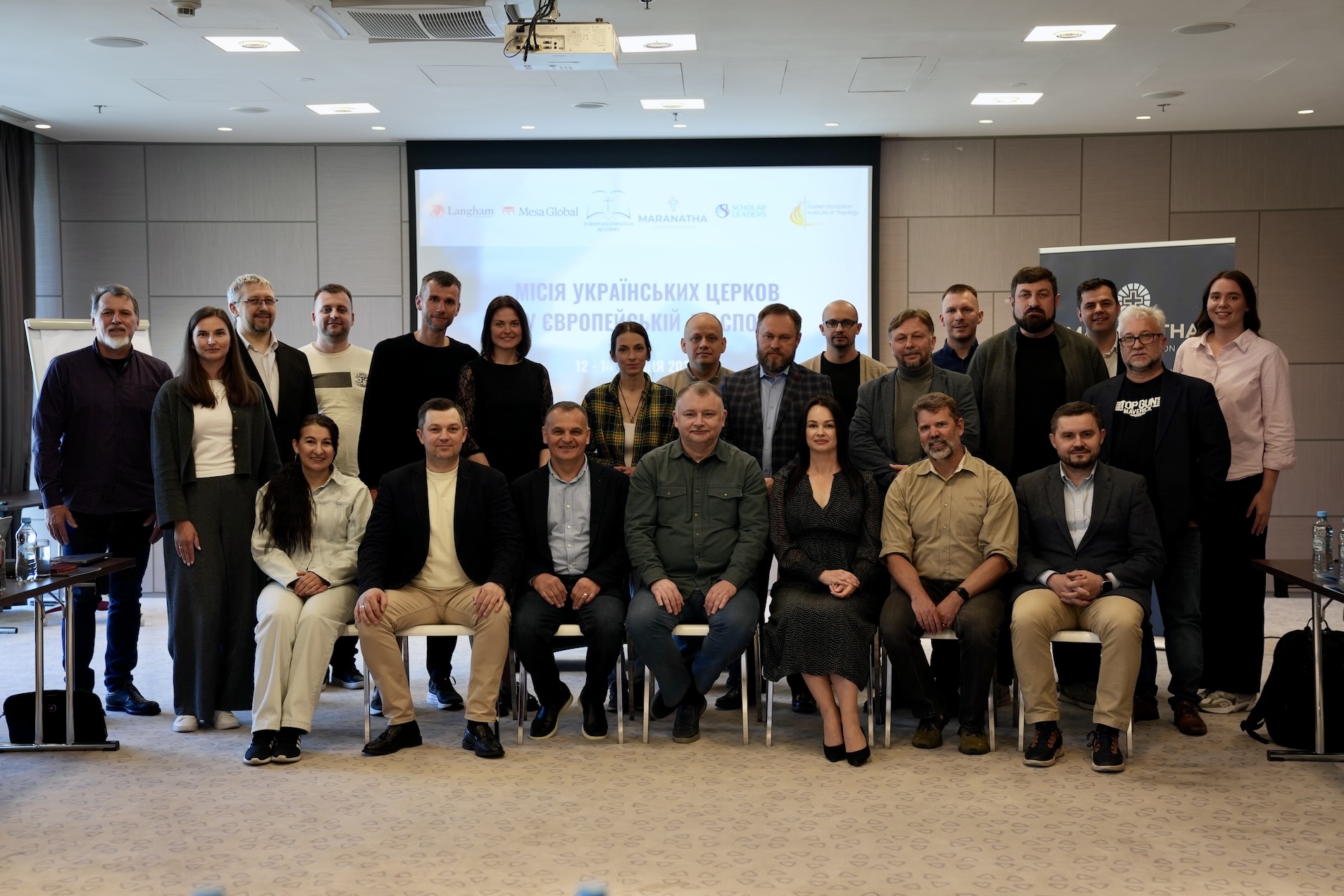
Strategic Conference-Consultation “Mission of Ukrainian Churches in the European Diaspora." Warsaw, Poland, 2025. Photography by European Christian Academy.
On May 12-14, 2025, a strategic conference-consultation "Mission of Ukrainian Churches in the European Diaspora" took place in Warsaw, bringing together 24 participants from Ukraine, Poland, Germany, Lithuania, Moldova, the United Kingdom, and the United States. The event united representatives of evangelical denominations, theological educators, pastors, and missionaries to discuss crucial issues facing Ukrainian churches abroad in the context of war and post-war perspectives. The consultation was organized through joint efforts of several international and Ukrainian theological and missionary organizations, including the European Christian Academy, Eastern European Institute of Theology, Scholar Leaders, Langham, Mesa Global, Chrzescijanska Misja Spoleczna Maranatha in partnership with Odesa Theological Seminary, Ukrainian Evangelical Theological Seminary, Vilnius Theological Institute, and the International Evangelical Theological Alliance. With participants from seven countries, the event created an international platform for meaningful exchange between representatives of the Ukrainian diaspora and Ukraine.
The conference-consultation was structured around three key objectives. First, to create a space for establishing connections between theology teachers living in different European countries who share an interest in developing missional theology for Ukrainian churches. Second, to unite efforts in jointly understanding the formation of church identity during wartime and the future post-war period in the diaspora. Third, to initiate a common platform for regular exchange between theologians and church leaders from Ukraine and the diaspora, ensuring mutual influence and enrichment through shared ideas and practices.
As a result of the conference, the presentation texts will be published in the autumn issue of "Theological Reflections: Eastern European Journal of Theology" focused on the mission of the church in the global diaspora.
The official opening (May 12) began with Roman Soloviy's welcome speech (Rector of the Eastern European Institute of Theology and Regional Editor in Eastern & Central Europe and Central Asia at Langham Literature). He conceptually framed the theological dimensions of the Ukrainian diaspora experience, presenting diaspora not simply as a community of people living far from their homeland, but as a bridge connecting Ukrainian roots with new realities abroad. He emphasized the key role churches play in preserving identity and uniting Ukrainians.
Roman Soloviy outlined the main ideas of diaspora theology, highlighting their special relevance amid Russian aggression against Ukraine. He proposed viewing displacement not only as tragedy but as a formative spiritual experience that opens space for new theological understanding, spiritual growth, and identity reimagining. He gave special attention to preserving cultural, spiritual, and national characteristics in a foreign environment, emphasizing the unique perspective gained by living between two worlds – homeland and country of residence. According to him, this diaspora experience fosters empathy toward other marginalized groups and deepens understanding of exclusion and discrimination. Soloviy identified theological understanding of hope for return and reconstruction as a vital aspect of diaspora theology.
In the context of Russian aggression, Soloviy emphasized the significance of understanding the forced displacement of millions of Ukrainians – the largest refugee wave in Europe since World War II. For those forced to leave their homeland, preserving Ukrainian identity becomes particularly acute. Yet the distance created by forced resettlement allows for fresh perspectives on Ukrainian national and theological narratives, cleansing them of imperial influences. Soloviy noted that Ukrainians in diaspora become witnesses to their people's suffering before the global community, creating biblical parallels with prophetic ministry. Diaspora theology, he argued, offers resources supporting hope for just peace, reconstruction, and return home. Furthermore, it enables critical analysis of theological justifications for aggression through the "Russian world" concept and fosters constructive theological alternatives. He highlighted how interfaith cooperation between different Ukrainian Christian traditions takes on special significance in diaspora communities facing common threats.
Concluding his remarks, Soloviy emphasized that diaspora theology offers Ukrainians not only tools for processing traumatic experiences of war and displacement, but also resources for transforming these experiences into new theological and missional visions that can enrich both Ukrainian theological thought and global theological discourse in the context of God's mission.
The second day (May 13) featured four thematic sessions. Volodymyr Ubyivovk (President of the European Christian Academy) presented "Church as Mission," analyzing three models of diaspora churches: those preserving the post-Soviet model; those combining two cultures; and those adopting local church forms. He noted that the latter model proves most successful missiologically. Ubyivovk examined crisis phenomena in society and church, including structural sin, family institution breakdown, fear of change, and minister shortages, offering practical recommendations regarding the church's missional responsibility.
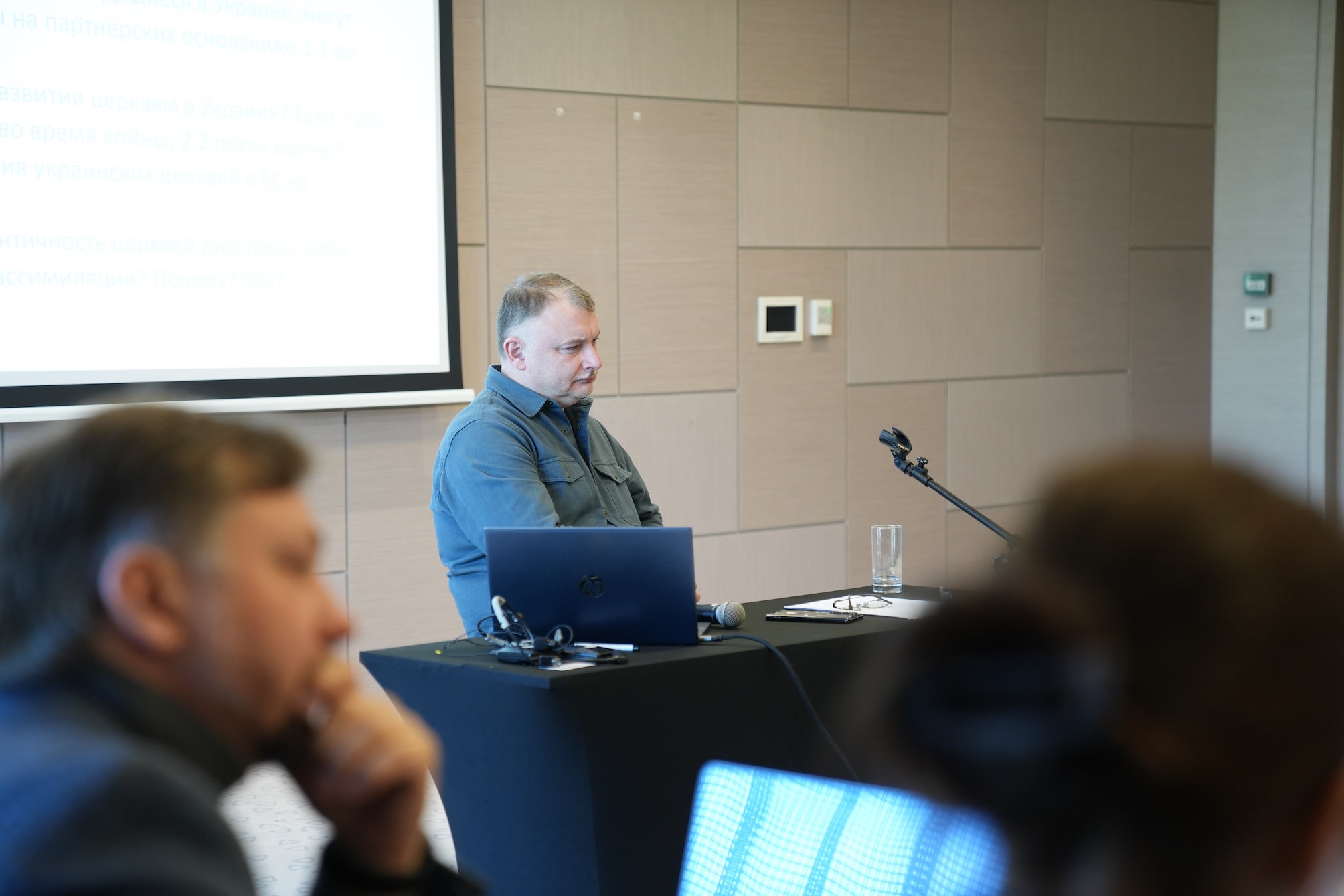
Volodymyr Ubyivovk, President of the European Christian Academy. Photography by European Christian Academy.
Ivan Rusyn (President of Ukrainian Evangelical Theological Seminary) delivered a thought-provoking paper titled "Ukrainian Church – Is It an End Goal or a Stage on the Way to a Church for All?" He examined diaspora from a biblical perspective, generating particular interest through his presentation of migration as a form of God's people's existence and drawing parallels between biblical Jewish diaspora and contemporary Ukrainian communities. The concepts of "fluid missiology" and vision of a "church with Ukrainian roots, but for all" became key discussion themes.
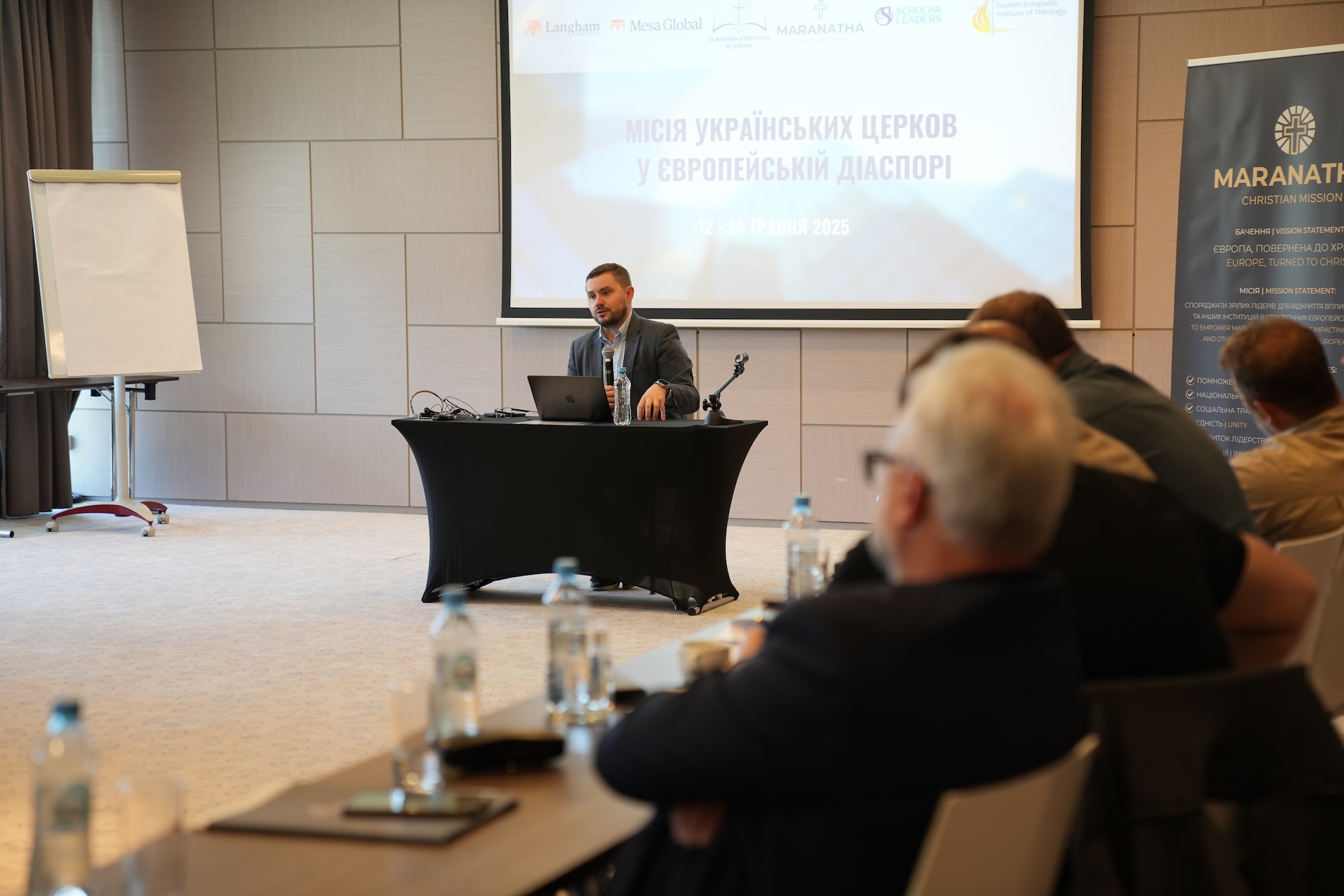
Ivan Rusyn, President of Ukrainian Evangelical Theological Seminary. Photography by European Christian Academy.
Oleksandr Geychenko (President of Odesa Theological Seminary) focused on challenges facing displaced persons through his presentation "Church, Society, and Faith, Hope, and Love." He conceptualized church as a community where faith provides understanding of trials, hope offers perspective for the future, and love supplies strength to overcome difficulties. Geychenko also proposed concrete ideas for creating active communities among Ukrainian theologians across Europe.
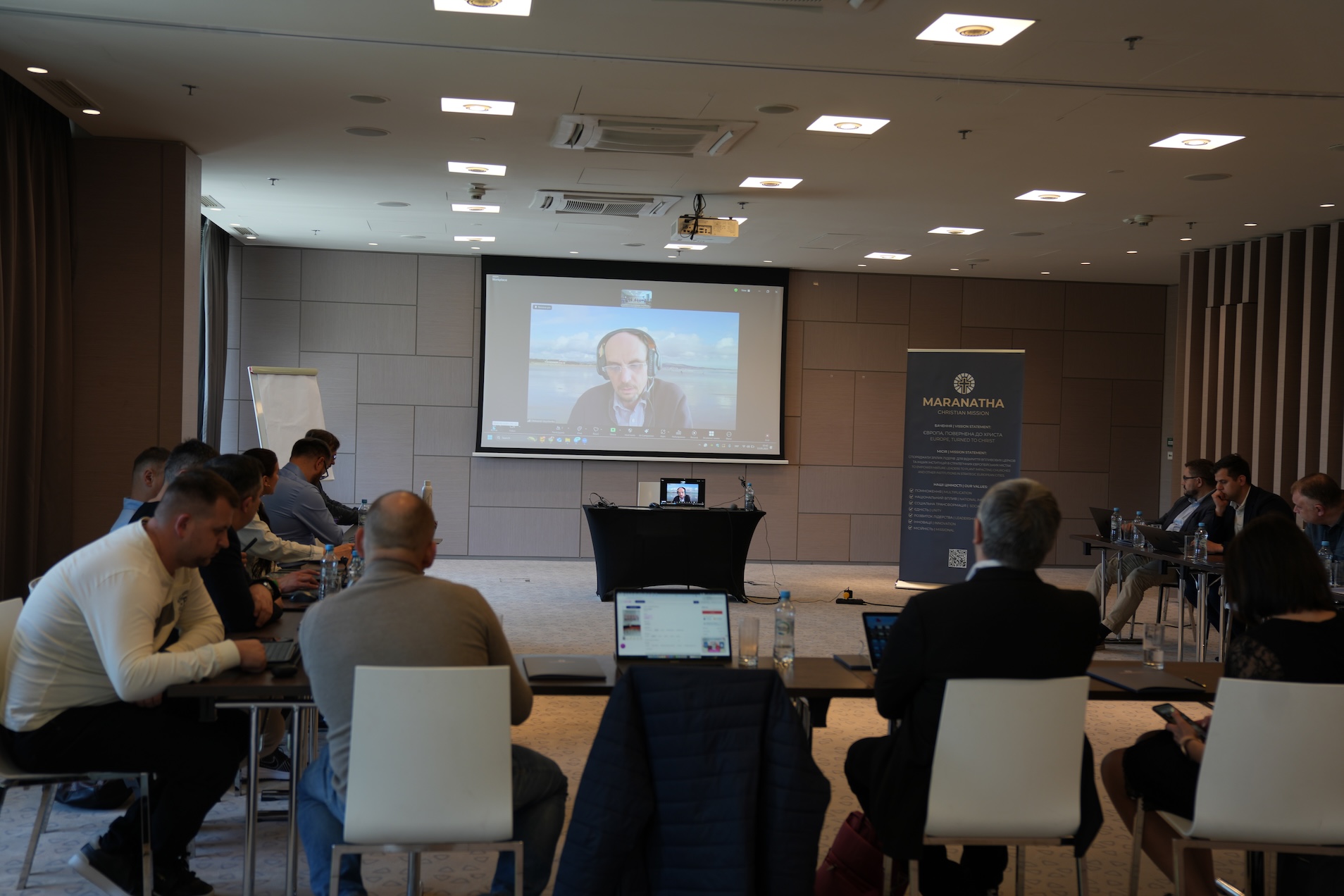
Oleksandr Geychenko, President of Odesa Theological Seminary. Photography by European Christian Academy.
Rostyslav Tkachenko (Research Fellow at the Eastern European Institute of Theology and Lecturer at Ukrainian Baptist Theological Seminary) concluded the day with his presentation on "Grammar and Rhetoric of Trauma," skillfully combining theoretical trauma understanding with practical theological approaches to healing. He presented theology as a language for articulating traumatic experience and emphasized theological education's role in developing resources for healing Ukrainians' collective traumas.
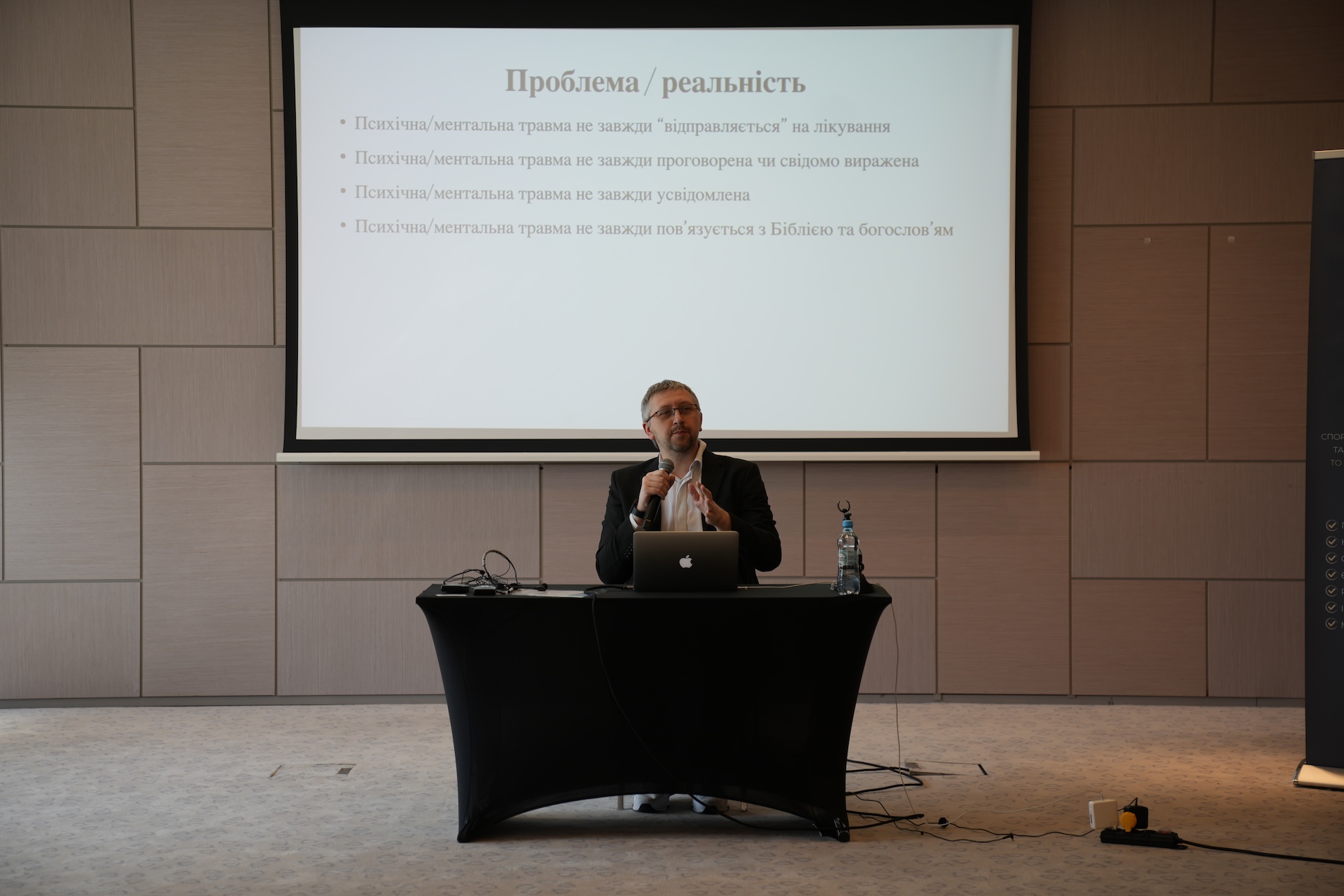
Rostyslav Tkachenko, Research Fellow at the Eastern European Institute of Theology and Lecturer at Ukrainian Baptist Theological Seminary. Photography by European Christian Academy.
The third day (May 14) was devoted to strategic planning and exploring "The Role of Theological Education in Forming Modern Ecclesiology of Ukrainian Diaspora Churches." Evan Hunter (Vice President of Scholar Leaders) and Taras Dyatlik (Regional Director of Scholar Leaders; Consultant at Mesa Global, Vice President of the Eastern European Institute of Theology) facilitated these sessions. Participants were divided into four working groups, each addressing eight strategic questions regarding the mission of Ukrainian churches in the European diaspora:
The conference concluded with a circle of final reflections where participants shared thoughts about the future of missional ministry in the diaspora. They emphasized the need for further consultations and creating a Ukrainian compendium on diaspora experience. An important theme was addressing the emotional tension between Ukrainians from Ukraine and those in diaspora, and finding pathways to deeper dialogue.
Participants valued the atmosphere of vulnerability that enabled authentic communication, highlighting the importance of processing personal trauma and the potential for interdenominational collaboration. They noted the necessity of caring for diaspora ministers who also face exhaustion in bicultural environments, and the importance of support systems that help redefine displaced persons' status from "refugees" to "people finding themselves."
One participant summarized the discussions with three key words: community, timeliness, and consolidation, emphasizing the need for developing theological education for church ministers in diaspora. Those serving in Ukraine while having family abroad spoke about finding balance, while displaced persons asked candid questions: "Are we still brothers or enemies? Can we serve God together?" These discussions reflected less certainty in answers than awareness of beginning a journey, with a deep sense of "being-between" – between countries, identities, past and future – accurately capturing the existential essence of diaspora experience.
Throughout the three days, participants raised fundamental questions that typically remain outside official discussions but form the basis of displaced persons' spiritual identity. These questions reflect not only personal experiences but also profound theological challenges facing the Ukrainian church amid mass displacement due to war. Rather than seeking quick answers, they outline the spiritual and intellectual space where new diaspora theology should develop.
Is it possible to preserve oneself while opening up to another? Where is the boundary between rootedness and alienation in a foreign land? Can we witness to our culture without becoming a museum of the past? How do we speak two languages – verbally and spiritually – without losing authentic voice? Who are we in the trauma of separation – exiles, witnesses, or prophets? Can those who experienced bombardment and those who experienced detachment truly hear each other across borders and experiences? How do we heal wounds running through both the nation's body and the Church's soul? How do we transform trauma into testimony, and memory into mission rather than walls? How can anger become creativity and pain become compassion? How do we speak the Gospel's language through our own Golgotha experience? Can our theological seminaries develop new paradigms from homelessness experiences? How do we prepare pastors who see both banks of a divided river? Can diaspora become not periphery but a new center of theological thought? Can dispersion become gathering? What word does the Ukrainian church offer the world after experiencing displacement, destruction, and opposition to evil? How can "being-between" – between countries, identities, past and unknown future – birth a theology of hope for a divided people?
Overall, the conference opened a unique space for understanding displacement and division as both theological challenge and missional opportunity. Through dialogue between those who stayed and those who left their homeland emerged an understanding that the Ukrainian church in diaspora, from its unique position of "being-between," carries a dual calling: witnessing to its people's suffering while transforming this experience into missional testimony understandable to other cultures. This approach allows not just preserving identity but reimagining it as gift and responsibility before a world that often forgets the language of suffering and hope. This consultation marked an important step toward realizing this calling, combining theological reflections with practical strategies and laying foundations for future cooperation between churches in Ukraine and the diaspora in theological education development. However, it represents not a conclusion but merely the first letter in a new alphabet of Ukrainian diaspora theology – one yet to be written through the joint efforts of those who, finding themselves between worlds, courageously question and create "all things new" within the context of God's Kingdom's global mission.
Taras N. Dyatlik, Vice-Rector for Development and International Cooperation at the Eastern European Institute of Theology, Engagement Director at ScholarLeaders International, Theological Education Consultant at Overseas Council-United World Mission.
Photography by European Christian Academy.
